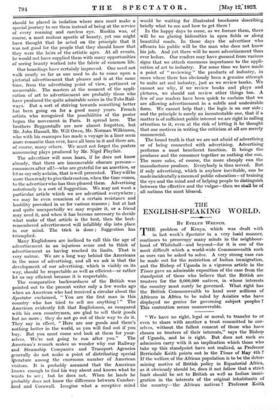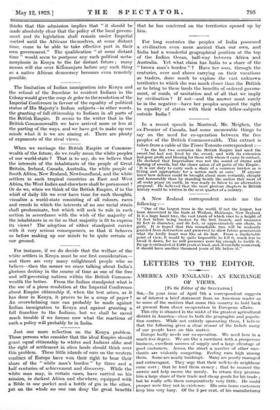" We have no right, legal or moral, to transfer
to or even to share with another a trust committed to our- selves, without the fullest consent of those who have chosen us trustees of their interests," says the Bishop of Uganda, and he is right. But does not such an admission carry with it an implication which those who take up this standpoint have not realized, as Professor Berriedale Keith points out in the Times of May 4th ? If the welfare of the African population is to be the deter- mining motive of British policy in Equatorial Africa, as it obviously should be, does it not follow that a strict limit should be set to British as well as Indian immi- gration in the interests of the original inhabitants of the country—the African natives ? Professor Keith thinks that this admission implies that " it should be made absolutely- clear that the policy of the local govern- ment and its legislation shall remain under Imperial control until the Africans themselves, at some distant time, come to be able to take effective part in their own government" The qualification " at some distant time " would seem to postpone any such political meta- morphosis in Kenya to the far distant future ; many moons will rise over Kilimanjaro before any such thing as a native African democracy becomes even remotely possible.



















































 Previous page
Previous page